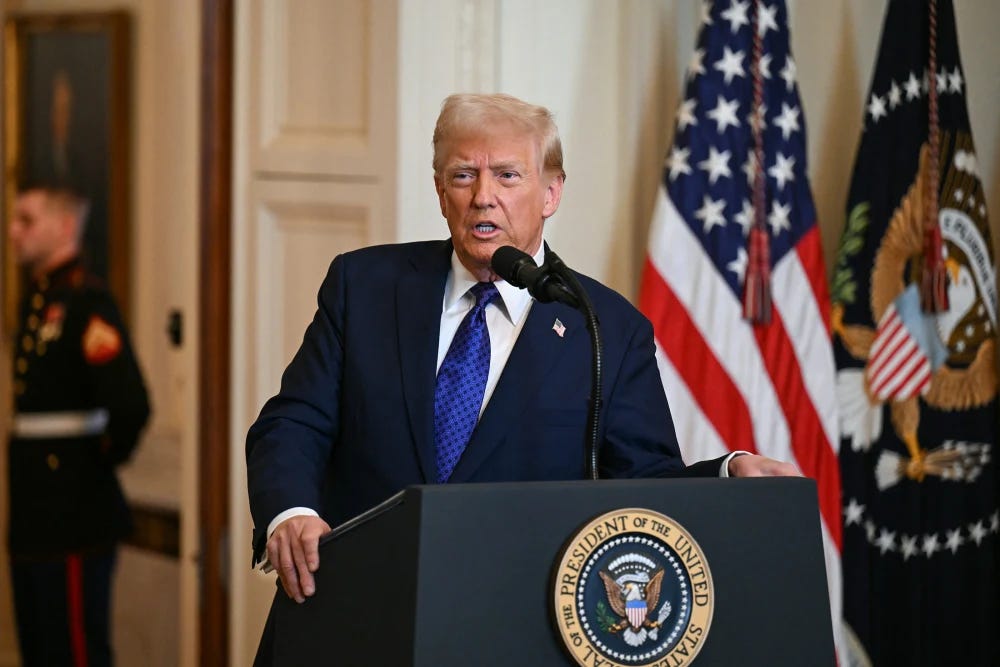CDC Removes HIV Content Amid Trump Administration's DEI Policy Changes
The federal health agency begins deleting content related to gender identity as part of broader efforts to eliminate diversity, equity, and inclusion initiatives.
The Centers for Disease Control and Prevention (CDC) began removing a significant amount of HIV-related content from its website on Friday, aligning with President Donald Trump’s directive to dismantle diversity, equity, and inclusion (DEI) programs across federal agencies.
The CDC temporarily took down its main HIV page, which was later restored, but the agency began scrubbing all content related to gender identity, including pages linked to HIV prevention efforts. According to one government staffer, this effort was part of a broader initiative to comply with a memo issued on January 29 by Charles Ezell, acting director of the U.S. Office of Personnel Management. The memo instructed federal agencies to avoid references to "gender ideology," a term often used by conservative groups to describe views on gender and sexuality, and to recognize only two sexes: male and female.
Agency employees struggled to implement the policy by the Friday deadline, and in the rush to comply, many HIV-related pages, which often include gender-related content, were taken down. These pages included critical resources on the disproportionate impact of HIV on Black, Latino, and transgender communities. While it’s unclear when these pages may be restored, the staffer indicated that the process of removal is ongoing.
The White House has not responded to requests for comment, and communications representatives from the CDC’s HIV and STD prevention departments did not reply to inquiries. Last week, the Trump administration ordered employees at the Department of Health and Human Services (HHS), which oversees the CDC, to halt communications with external parties.
Trump's executive order, signed last week, requires the federal government to only recognize the sexes male and female, while cutting what the administration terms "wasteful" DEI spending. This order has sparked concern among public health experts, who fear it could undermine the CDC’s efforts to address HIV in marginalized communities, especially those disproportionately affected by the virus, including people of color, gay and bisexual men, and transgender individuals.
The move could have serious implications for the CDC’s ability to fight HIV. Since its formation in the 1980s, the CDC’s HIV division has been at the forefront of HIV prevention and research in the U.S., tracking infections, conducting studies, and promoting initiatives like the use of HIV prevention medications. The CDC has also allocated significant federal funding to state and local health departments for on-the-ground HIV prevention efforts.
In addition to the main HIV page, several other HIV-related resources have been taken offline, including a page on racial disparities in HIV rates, information targeting transgender individuals, and details about the federal "Ending the HIV Epidemic" plan. A website offering resources for agencies funded by the Ryan White HIV/AIDS Program, which supports low-income individuals with HIV, has also been removed, with a note indicating it is "under maintenance."
The removal of these pages raises concerns about how the Trump administration’s anti-DEI stance will affect the fight against HIV, particularly as certain groups—such as Black, Latino, gay, bisexual, and transgender people—are disproportionately impacted by the virus.
“The current effort to prevent HIV will be significantly hindered if we cannot discuss and address the unique risks faced by these communities,” said Lindsey Dawson, associate director at KFF, a nonprofit health policy organization. “This approach could increase stigma, disrupt outreach efforts, and undermine the trust that is essential for effective prevention.”
HIV advocates and experts have voiced alarm at the broader implications of the administration’s policies, with many fearing that the removal of DEI initiatives will reverse critical progress in HIV prevention. Dr. Jeffrey Klausner, an infectious disease expert at the University of Southern California, expressed deep concern over the potential setbacks in the fight against HIV, particularly in marginalized communities.
“This is a critical moment for HIV prevention in the U.S.,” Klausner said. “The expertise and dedication of scientists at the CDC and NIH have been essential to our progress. Now, there is real risk that political agendas could undo the hard-won gains we've made.”
In addition to the CDC, other federal health agencies have also seen content related to diversity, equity, and gender removed, including websites for the National Institutes of Health, the FDA’s Office of Minority Health and Health Equity, and the HHS reproductive rights website.
As the nation’s largest public health agency, the CDC’s mission to combat HIV has historically relied on addressing disparities based on race, sex, and gender identity. Health experts fear that Trump’s policies, if fully implemented, could not only hinder HIV prevention efforts but also reverse significant strides made in reducing the impact of the virus on vulnerable populations.


